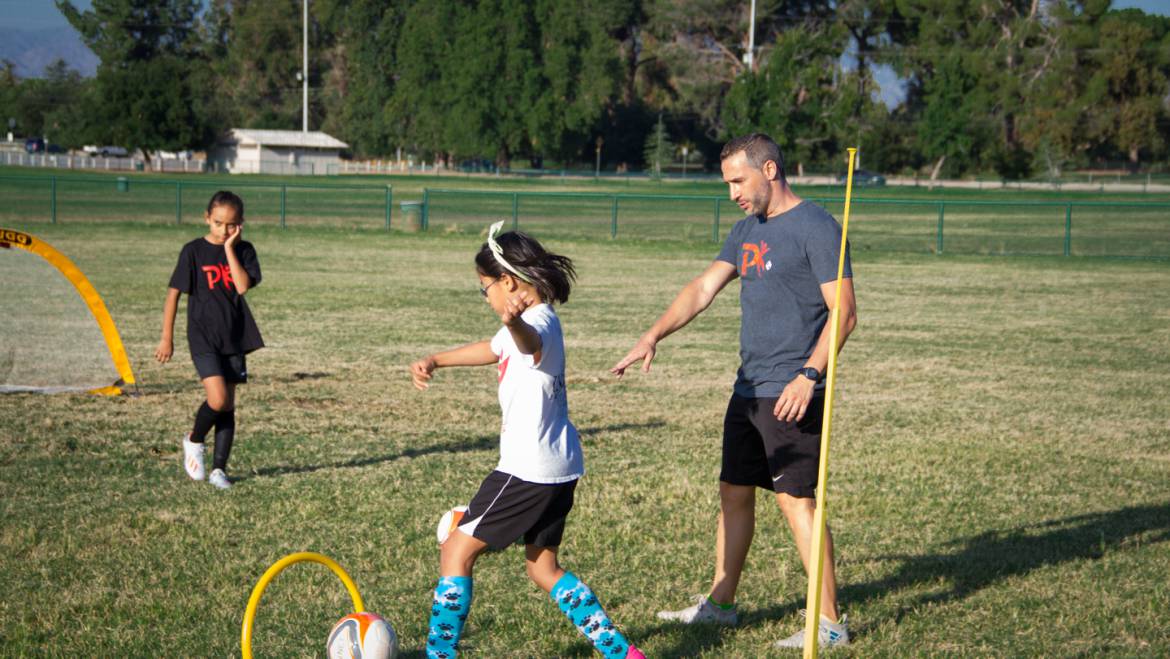ROLES: Coach vs Player
What does a soccer coach do? Is he responsible for a player’s ability to control the ball, pass to a teammate, score a goal and celebrate with the right force on a three-yard knee slide?
Actually, yes! A decent soccer coach will have enough influence on a youth soccer player to affect every aspect of performance. Coaches receive training and license to instruct, guide and mentor aspiring players of varying levels of talent, character and personality. They have a lot to do in determining how far a player can go in a soccer career.
But coaches do not invent a player’s abilities, neither do they conjure talent. Players typically have to do more work on themselves than a coach can do. Where both roles are performed in synergy, the results will be good for player and coach. So what exactly are the roles of coaches and players?
Structure
A player left to himself will only do what he finds useful. These can range from very easy to extremely difficult. Following either extremes is bad for player development; he will either be mediocre or be quickly discouraged. To counter both, a coach serves as an advisor on whom a player relies on for structure and guidance1. Beginning with basics, a coach provides a roadmap for gradually growing from skill sets in running, kicking and passing effectively to controlling, dribbling and shooting. The coach monitors player performance in each of these activities as a teacher would. He counsels where there are shortfalls and congratulates when done well. In a way, a coach is a judge2 because he keeps the player honest and accountable. A player has to buy into the values of this structure, even if it may not be obvious at the initial stage. Coaches set structures based on a philosophy – an understanding of how soccer should be played. While a player may have his own ideas (probably from watching tons of soccer on TV or because of a favourite player’s style), cooperating fully with the coach on how to play is a foundational requirement for development.
Tactical Organisation
It is a coach’s duty to develop a young player’s understanding of how a game of soccer is won or lost. A coach sets formations, determining how best to organize a team3 based on the players available. The choice of tactics could depend on the technical qualities of the available players. For example, a coach may organize a team such that the most physical and taller players are in central positions, giving the team a strong “spine”, while fast players may be placed on the wings.
A coach will need to be a good communicator in order to transmit tactical instructions to players. “Coaches should always strive to be the best possible communicators”, says Paul Caligiuri4, a former US Men’s National Team player who has coached men’s and women’s teams.
In youth soccer, the coach would have to be a patient teacher. But the player would have to be attentive to the coach’s guidance.
Technical Development
As mentioned above, tactics depend on technical capacity to be successful. For youth soccer players, the coach has much to do in developing a player’s technical quality. Due to variations in mental and physical ability, some players will be able to pull off some soccer skills more easily than others. However, the average player can be taught the most fundamental skills of running with a ball, passing, and shooting. A good coach spots a child’s ability at the initial stage and decides on how to improve them by patient teaching and challenging them incrementally. Shooting, passing and dribbling drills will be adapted to progressively empower the child, making them more confident and sharp5.
On the other hand, the player must challenge themselves too. First, the player should understand his own body and mind, knowing strong and weak points. Taking cues from the coach, the player strives to build on the strengths and improve on weaknesses through personal practice. Many of today’s soccer players became top performers by often staying back after team practice sessions to work on their skills. Taking the horse to the river is for the coach, it’s up to the player to drink as much as possible.
Motivation
A good coach sets an example for player’s to follow. He will be early to practice, have all of his tools (whistle, cones, notepad, etc) ready each day and show up in the right gear. Players can derive motivation from a coach who always looks up for the day’s job. He projects authority, confidence and efficiency. Importantly, he communicates these strengths to players, individually and collectively.
Regardless of ability, young soccer players need motivation6 in the same way kids in a math class thrive off positive reinforcement. It is an aid to strengthen willpower and build character. Positive communication during practice can translate to good performance in games. Motivation is valuable during games, at half-time or at the end of a game.
A player should also motivate himself. Soccer will not always be fun for the beginner, especially when working in the structured world of coaches and soccer academies. There will be days when it won’t make sense to go for practice, and a player may find reasons to object to a coach’s tactical demands for certain games. Remembering the reason for enrolling is one of many ways to stay motivated.7
Overall, coaches and players have their roles in player development and performance. The key to maximizing potential is synergy.
REFERENCES
The Role of the Coach in Youth Sports
2Coaching Youth Soccer https://www.esoccerdrills.com/soccer-coaching/youth.html
The Job Duties of a Soccer Coach https://work.chron.com/job-duties-soccer-coach-11834.html
The Role of Being a Youth Coach Part 1
5The Role of the Soccer Coach https://www.soccer-training-info.com/coaches_role.asp
Motivate your young soccer players
7Steps to Self-motivated decision makers https://playerdevelopmentproject.com/7-steps-to-self-motivated-decision-makers/

